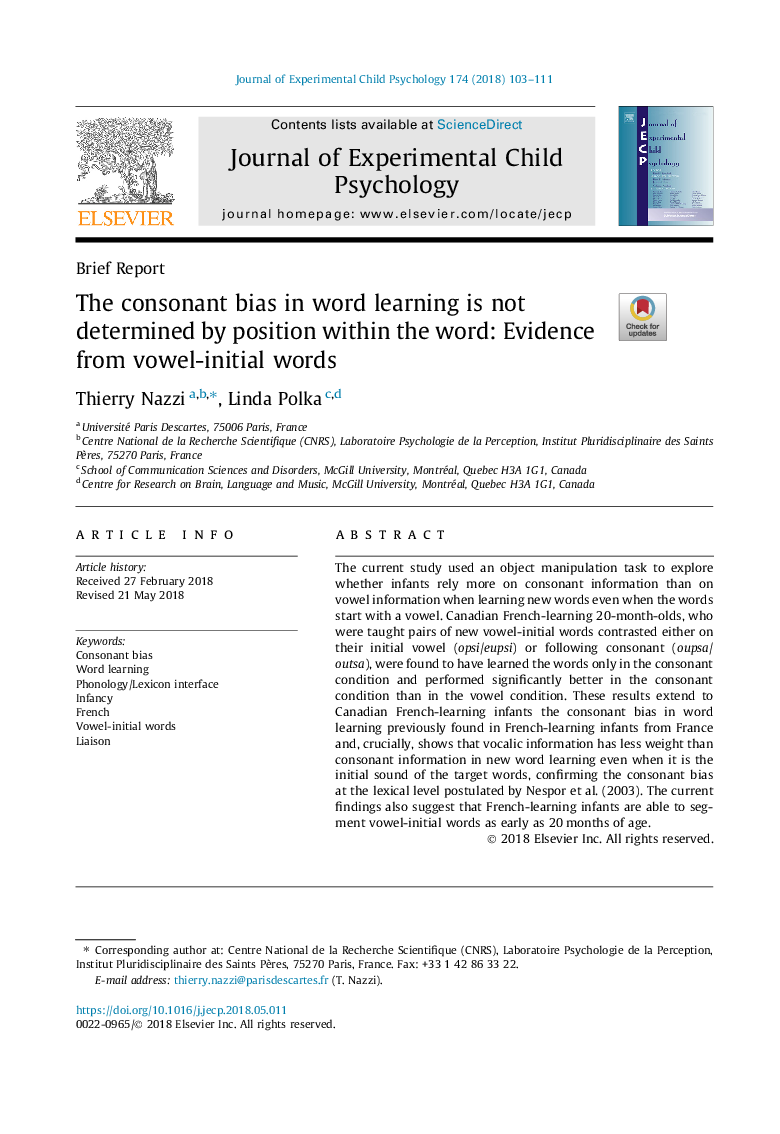| Article ID | Journal | Published Year | Pages | File Type |
|---|---|---|---|---|
| 7273715 | Journal of Experimental Child Psychology | 2018 | 9 Pages |
Abstract
The current study used an object manipulation task to explore whether infants rely more on consonant information than on vowel information when learning new words even when the words start with a vowel. Canadian French-learning 20-month-olds, who were taught pairs of new vowel-initial words contrasted either on their initial vowel (opsi/eupsi) or following consonant (oupsa/outsa), were found to have learned the words only in the consonant condition and performed significantly better in the consonant condition than in the vowel condition. These results extend to Canadian French-learning infants the consonant bias in word learning previously found in French-learning infants from France and, crucially, shows that vocalic information has less weight than consonant information in new word learning even when it is the initial sound of the target words, confirming the consonant bias at the lexical level postulated by Nespor et al. (2003). The current findings also suggest that French-learning infants are able to segment vowel-initial words as early as 20â¯months of age.
Keywords
Related Topics
Social Sciences and Humanities
Psychology
Developmental and Educational Psychology
Authors
Thierry Nazzi, Linda Polka,
